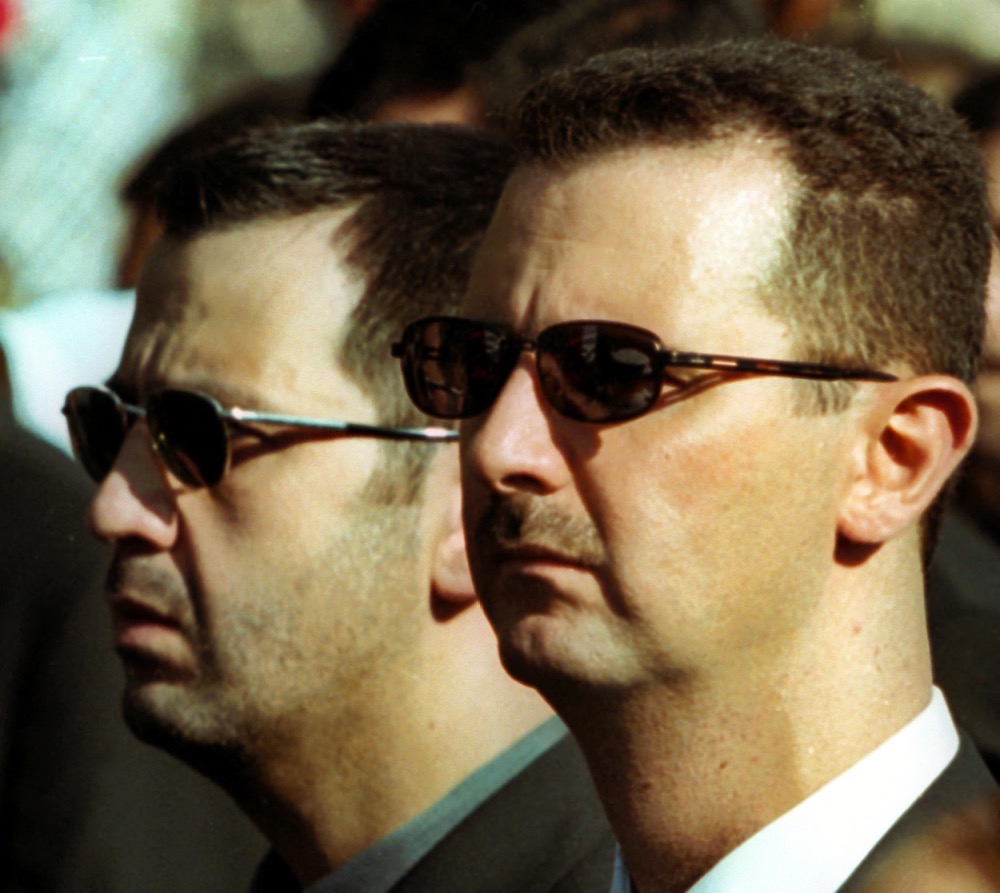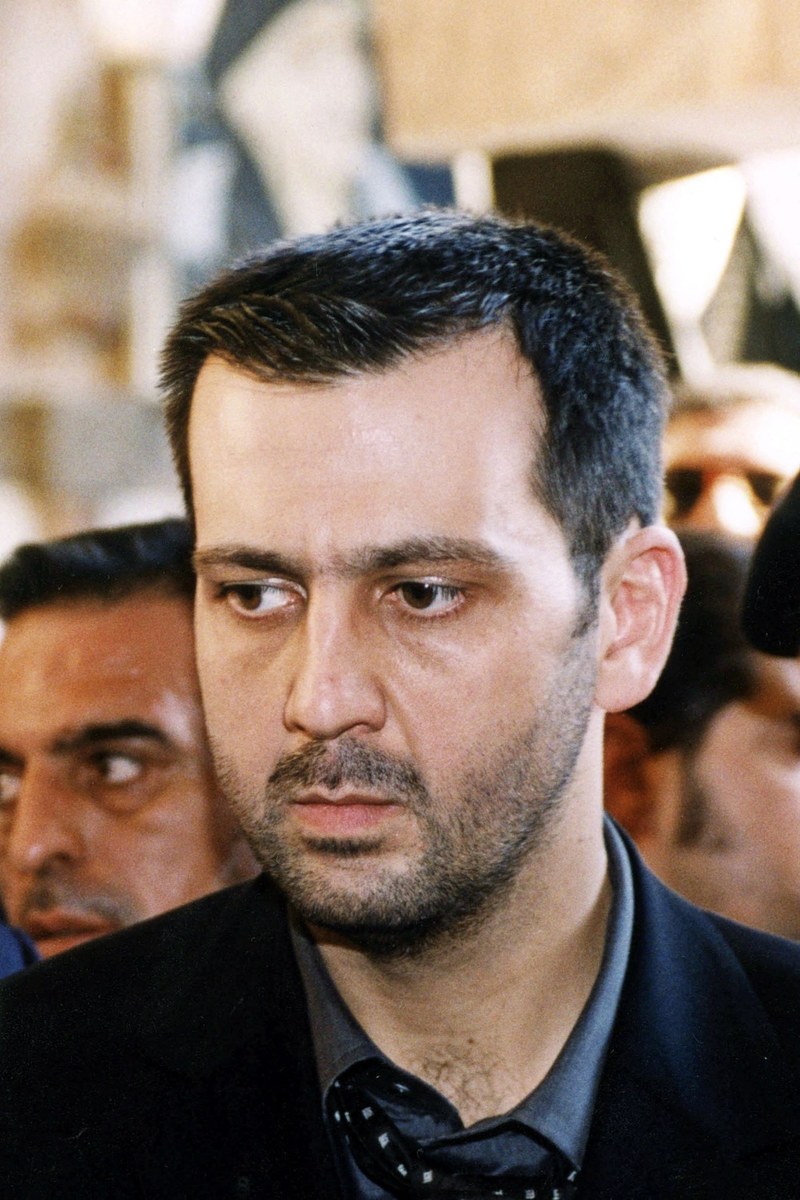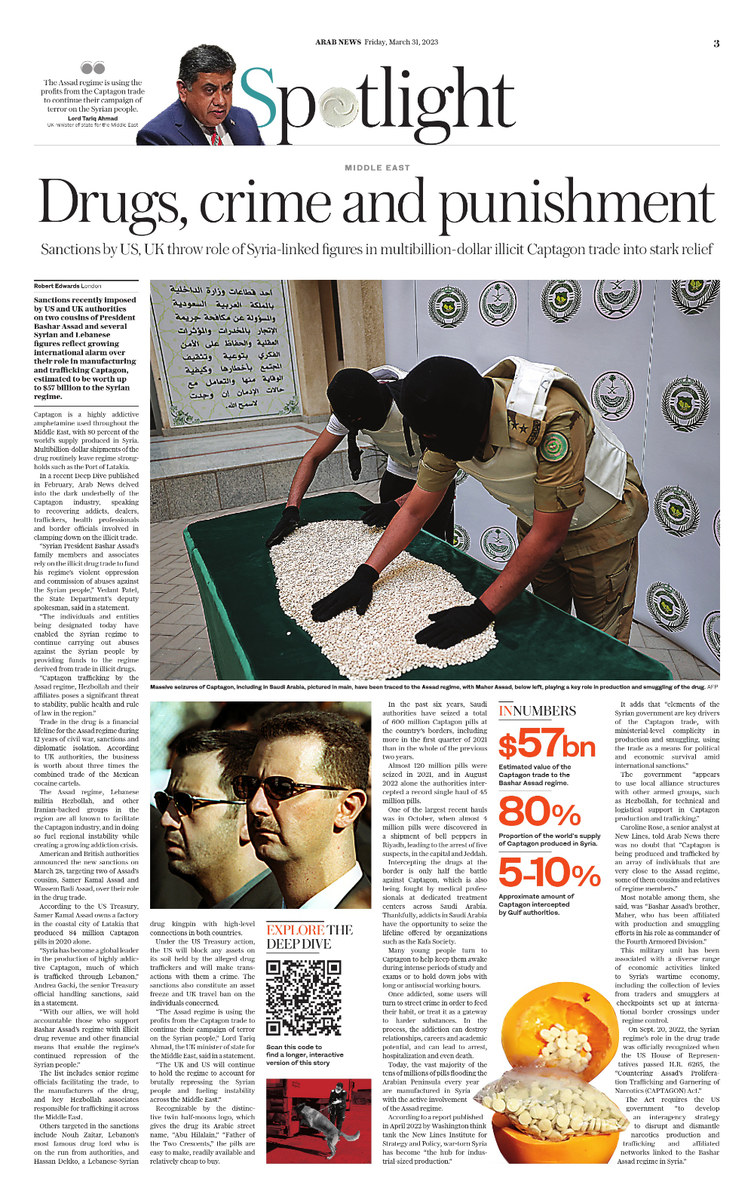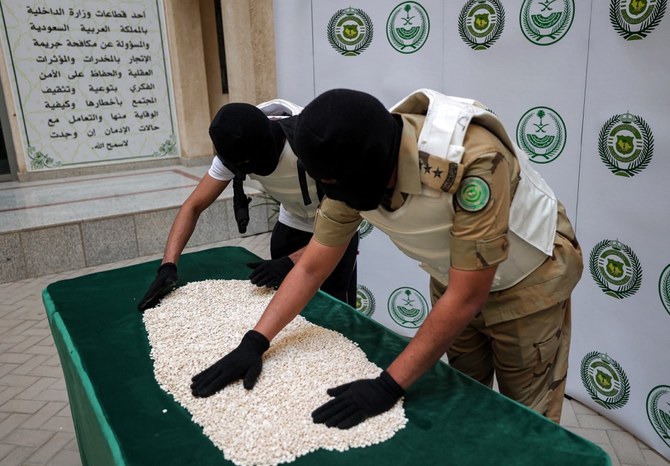LONDON: Sanctions recently imposed by US and UK authorities on two cousins of President Bashar Assad and several Syrian and Lebanese figures reflect growing international alarm over their role in manufacturing and trafficking Captagon, estimated to be worth up to $57 billion to the Syrian regime.
Captagon is a highly addictive amphetamine used throughout the Middle East, with 80 percent of the world’s supply produced in Syria. Multibillion-dollar shipments of the drug routinely leave regime strongholds such as the Port of Latakia.
In a recent Deep Dive published in February, Arab News delved into the dark underbelly of the Captagon industry, speaking to recovering addicts, dealers, traffickers, health professionals, and border officials involved in clamping down on the illicit trade.
“Syrian President Bashar Assad’s family members and associates rely on the illicit drug trade to fund his regime’s violent oppression and commission of abuses against the Syrian people,” Vedant Patel, the State Department’s deputy spokesman, said on Tuesday.
“The individuals and entities being designated today have enabled the Syrian regime to continue carrying out abuses against the Syrian people by providing funds to the regime derived from trade in illicit drugs.
“Captagon trafficking by the Assad regime, Hezbollah and their affiliates poses a significant threat to stability, public health and rule of law in the region.”

Captagon is a highly addictive amphetamine used throughout the Middle East. (AFP)
Trade in the drug is a financial lifeline for the Assad regime during 12 years of civil war, sanctions and diplomatic isolation. According to UK authorities, the business is worth approximately three times the combined trade of the Mexican cocaine cartels.
The Assad regime, Lebanese militia Hezbollah, and other Iranian-backed groups in the region are all known to facilitate the Captagon industry, and in doing so fuel regional instability while creating a growing addiction crisis.
American and British authorities announced the new sanctions on March 28, targeting two of Assad’s cousins, Samer Kamal Assad and Wassem Badi Assad, over their role in the drug trade.
According to the US Treasury, Samer Kamal Assad owns a factory in the coastal city of Latakia that produced 84 million Captagon pills in 2020 alone.
“Syria has become a global leader in the production of highly addictive Captagon, much of which is trafficked through Lebanon,” Andrea Gacki, the senior Treasury official handling sanctions, said in a statement.
“With our allies, we will hold accountable those who support Bashar Assad’s regime with illicit drug revenue and other financial means that enable the regime’s continued repression of the Syrian people.”
The list includes senior regime officials facilitating the trade, to the manufacturers of the drug, and key Hezbollah associates responsible for trafficking it across the Middle East.
Others targeted in the sanctions include Nouh Zaitar, Lebanon’s most famous drug lord who is on the run from authorities, and Hassan Dekko, a Lebanese-Syrian drug kingpin with high-level connections in both countries.
Under the US Treasury action, the US will block any assets on its soil held by the alleged drug traffickers and will make transactions with them a crime. The sanctions also constitute an asset freeze and UK travel ban on the individuals concerned.

Seizures of Captagon have been traced to the Assad regime, with Maher Assad, left, playing a key role in production and smuggling of the drug. (AFP)
“The Assad regime is using the profits from the Captagon trade to continue their campaign of terror on the Syrian people,” Lord Tariq Ahmad, the UK minister of state for the Middle East, said in a statement.
“The UK and US will continue to hold the regime to account for brutally repressing the Syrian people and fueling instability across the Middle East.”
Recognizable by the distinctive twin half-moons logo, which gives the drug its Arabic street name, “Abu Hilalain,” “Father of the Two Crescents,” the pills are easy to make, readily available and relatively cheap to buy.
In the past six years, Saudi authorities have seized a total of 600 million Captagon pills at the country’s borders, including more in the first quarter of 2021 than in the whole of the previous two years.
Almost 120 million pills were seized in 2021, and in August 2022 alone the authorities intercepted a record single haul of 45 million pills.
One of the largest recent hauls was in October, when almost 4 million pills were discovered in a shipment of bell peppers in Riyadh, leading to the arrest of five suspects, in the capital and Jeddah.
Intercepting the drugs at the border is only half the battle against Captagon, which is also being fought by medical professionals at dedicated treatment centers across Saudi Arabia. Thankfully, addicts in Saudi Arabia have the opportunity to seize the lifeline offered by organizations such as the Kafa Society.
INNUMBERS
• $57bn Estimated value of the Captagon trade to the Bashar Assad regime.
• 80% Proportion of the world’s supply of Captagon produced in Syria.
• 5%-10% Approximate amount of Captagon intercepted by Gulf authorities.
Many young people turn to Captagon to help keep them awake during intense periods of study and exams or to hold down jobs with long or antisocial working hours.
Once addicted, some users will turn to street crime in order to feed their habit, or treat it as a gateway to harder substances. In the process, the addiction can destroy relationships, careers and academic potential, and can lead to arrest, hospitalization and even death.
Captagon has been found to cause confusion and mood swings, ranging from anxiety and extreme depression to impatience, irritability and feelings of anger or rage.
Even more worryingly, it also endows some users with an indifference to pain and fear and a dangerous sense of invincibility — qualities that have reportedly led to the drug being adopted by the foot soldiers of Daesh and other terror groups in the region.

Maher Assad has been affiliated with production and smuggling efforts in his role as commander of the Fourth Armored Division, Caroline Rose told Arab News. (AFP)
In 1981, amid growing evidence of widespread addiction and misuse, including its use as a performance-enhancing drug in sports such as cycling and soccer, Captagon was banned by the US Food and Drug Administration.
In 1986, Captagon’s legal run finally came to an end when the World Health Organization listed fenethylline as a controlled substance under the 1971 Convention on Psychotropic Substances, to which Saudi Arabia has been a signatory since 1975.
Since then, the drug has not been produced, sold or prescribed legally anywhere in the world. But in the shadows, criminal gangs had spotted a profitable opportunity and counterfeit versions of Captagon soon began to appear in the Middle East and elsewhere.
Today, the vast majority of the tens of millions of pills flooding the Arabian Peninsula every year are manufactured in Syria with the active involvement of the Assad regime.
According to a report published in April 2022 by Washington think tank the New Lines Institute for Strategy and Policy, war-torn Syria has become “the hub for industrial-sized production.”
It adds that “elements of the Syrian government are key drivers of the Captagon trade, with ministerial-level complicity in production and smuggling, using the trade as a means for political and economic survival amid international sanctions.”
The government “appears to use local alliance structures with other armed groups, such as Hezbollah, for technical and logistical support in Captagon production and trafficking.”

80 percent of the world’s Captagon supply produced in Syria. (AFP)
Caroline Rose, a senior analyst at New Lines, told Arab News there was no doubt that “Captagon is being produced and trafficked by an array of individuals that are very close to the Assad regime, some of them cousins and relatives of regime members.”
Most notable among them, she said, was “Bashar Assad’s brother, Maher, who has been affiliated with production and smuggling efforts in his role as commander of the Fourth Armored Division.”
This military unit has been associated with a diverse range of economic activities linked to Syria’s wartime economy, including the collection of levies from traders and smugglers at checkpoints set up at international border crossings under regime control.
On Sept. 20, 2022, the Syrian regime’s role in the drug trade was officially recognized when the US House of Representatives passed H.R. 6265, the “Countering Assad’s Proliferation Trafficking and Garnering of Narcotics (CAPTAGON) Act.”
The Act requires the US government “to develop an interagency strategy to disrupt and dismantle narcotics production and trafficking and affiliated networks linked to the Bashar Assad regime in Syria.”
Speaking on the House floor in support of the Bill, Representative French Hill said that “in addition to regularly committing war crimes against his own people, the Assad regime in Syria is now becoming a narco-state.”
Captagon, he added, “has already reached Europe and it is only a matter of time until it reaches our shores.”





























